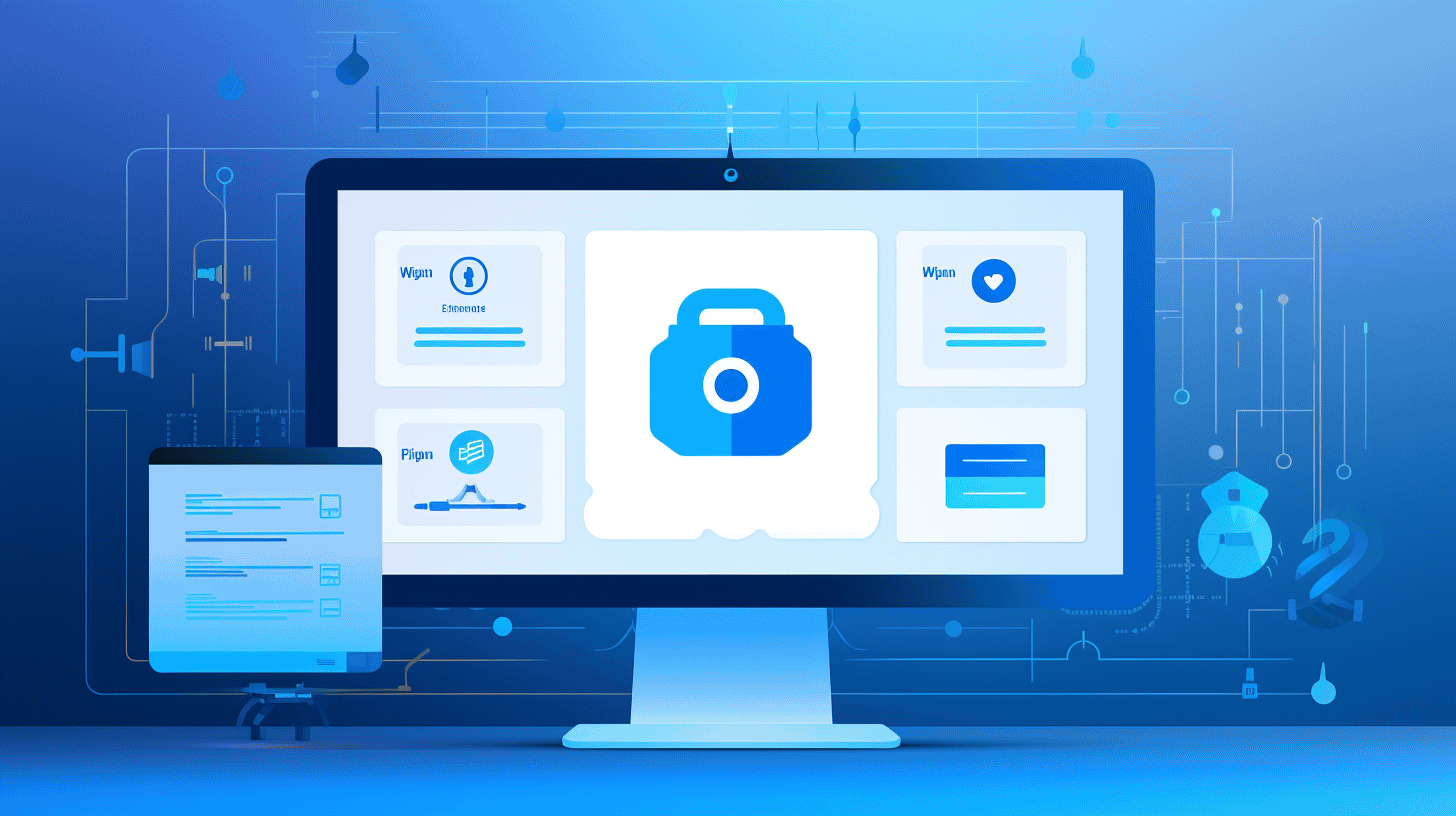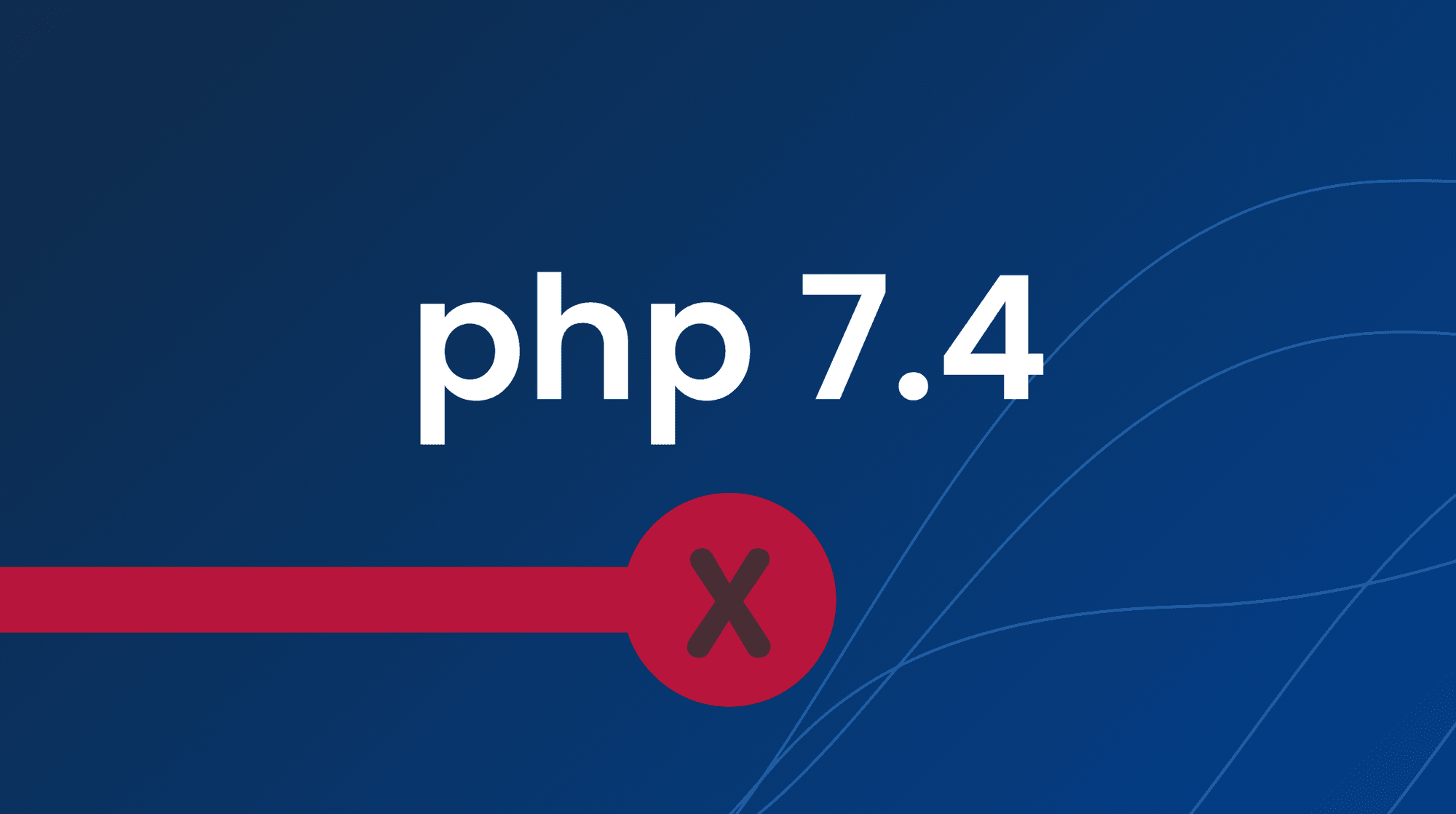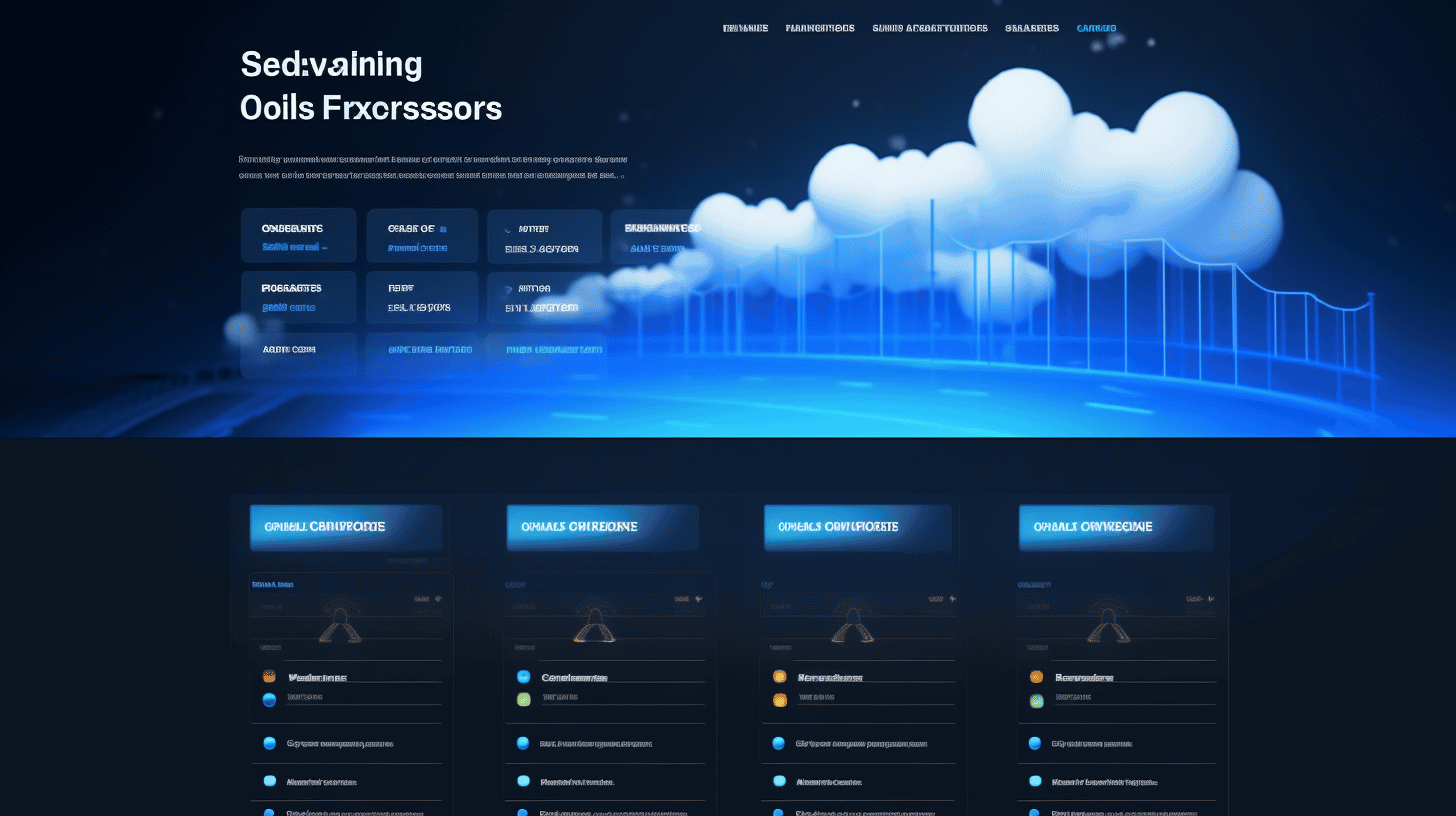網站安全是企業和個人最關注的問題,尤其是在當今數位時代。一個經常因其安全漏洞而受到審查的平台是 WordPress。作為市場上最受歡迎的內容管理系統 (CMS) 之一,WordPress 為全球數百萬個網站提供支援。雖然 WordPress 確實提供了一系列安全功能,但它並不能免於威脅。
在本文中,我們將探討 WordPress 中存在的常見漏洞,並強調定期維護對於抵禦這些安全風險的重要性。無論您是使用 WordPress 建立網站的企業主,還是管理客戶網站的自由開發人員,了解和解決這些安全問題對於保障您的線上形像都至關重要。
在本文中,我們將提供有關保護您的 WordPress 網站的可行見解和最佳實踐。從更新核心軟體到投資安全託管,我們將涵蓋所有基礎,以確保您的網站保持安全。
因此,讓我們深入研究並正面解決這些網站安全問題。畢竟,安全的網站是成功的線上業務的基礎。
WordPress 中的常見漏洞
WordPress 無疑是最受歡迎的內容管理系統 (CMS) 之一,為網路上數百萬個網站提供支援。然而,受歡迎是有代價的。由於如此多的網站依賴 WordPress,它已成為駭客和網路犯罪分子的主要目標。在本節中,我們將探討一些導致 WordPress 網站易受攻擊的常見漏洞。
易受攻擊的軟體
導致 WordPress 漏洞的關鍵因素之一是存在易受攻擊的軟體。無論是 WordPress 本身還是其他軟體元件的過時版本,存在安全漏洞都可能使您的網站暴露在外。以下是需要考慮的一些要點:
- 平均有 42% 的 WordPress 網站至少安裝了一個易受攻擊的軟體[1].
- 2022 年,WordPress 核心軟體中僅發現 23 個漏洞[2].
- 但值得注意的是,WordPress 漏洞中的 90% 實際上是外掛漏洞[3].
- 令人震驚的是,光是 2% 的 WordPress 外掛就導致了 99% 的漏洞[4].
保護您的網站首先要確保所有軟體元件(包括 WordPress 核心、外掛和主題)都是最新的且沒有漏洞。定期更新這些元件對於維護 WordPress 網站的安全性至關重要。
弱密碼
導致 WordPress 網站暴露的另一個重大漏洞是使用弱密碼。雖然這看起來很明顯,但許多用戶仍然依賴弱密碼,這使得駭客更容易獲得未經授權的存取。請考慮以下情況:
- 8% 的 WordPress 網站因密碼薄弱而遭到駭客攻擊[5].
- 為了保護您的網站,請鼓勵使用者建立包含大寫和小寫字母、數字和特殊字元組合的強密碼。
此外,在使用者登入時實施雙重認證 (2FA) 可以提供額外的安全保障,即要求使用者使用他們擁有的東西(例如發送到他們的行動裝置的代碼)和他們知道的東西(例如密碼)來驗證他們的身份。
過時的軟體
當涉及 WordPress 安全時,使用過時的軟體就意味著災難。過時的 WordPress、外掛和主題版本通常存在已知漏洞,駭客可以利用這些漏洞來獲取未經授權的存取。讓我們來看看這個令人震驚的統計數據:
- 93% 的網站被駭是由於 WordPress 網站上的軟體過時[6].
始終關注 WordPress、外掛程式和主題的更新,並在其發布後立即安裝。定期更新您的軟體對於防範潛在的安全風險至關重要。
易受攻擊的外掛和主題
由於 WordPress 擁有大量外掛和主題,駭客經常瞄準易受攻擊的外掛和主題也就不足為奇了。為您的網站選擇外掛和主題時,請務必謹慎:
- 堅持使用信譽良好的來源,例如 WordPress 外掛目錄和經過驗證的主題提供者。
- 在安裝外掛程式或主題之前,請檢查其評級、評論和更新頻率。
- 注意與某些外掛程式或主題相關的已知漏洞。
請記住,WordPress 網站的安全性取決於其最薄弱的環節。在選擇和維護外掛和主題時始終將安全性放在首位。
透過解決這些常見漏洞並實施適當的安全措施,您可以大幅降低 WordPress 網站受到攻擊的風險。有關如何最大限度地提高 WordPress 用戶網站安全性的更多重要提示,請查看此內容 資源.
[1] 資料來源:(平均有 42% 的 WordPress 網站安裝了至少 1 個易受攻擊的軟體。)
[2] 資料來源:(2022 年,WordPress 核心軟體中僅發現了 23 個漏洞。)
[3] 來源:(WordPress 漏洞中的 90% 都是外掛漏洞。)
[4] 來源:(2% 的 WordPress 外掛導致了 99% 的漏洞。)
[5] 來源:(8% 的 WordPress 網站因密碼薄弱而遭到駭客攻擊。)
[6] 資料來源:(93% 被駭的網站都是因為 WordPress 網站上的軟體過時造成的。)
WordPress 安全攻擊的流行程度
在當今的數位環境中,針對 WordPress 網站的安全攻擊的普遍性日益令人擔憂。隨著 WordPress 作為互聯網上領先的內容管理系統 (CMS) 的流行,它已成為尋求利用漏洞的惡意行為者的主要目標。這些攻擊包括暴力登入嘗試和外掛漏洞,可能會給網站所有者帶來嚴重後果。
以下是一些驚人的統計數據,揭示了 WordPress 安全攻擊的規模:
- 每分鐘針對 WordPress 網站有近 9 萬次攻擊[1].
- 光是 Wordfence Security 外掛程式就阻止了 185 億次密碼攻擊請求[2].
- 令人震驚的是,每天有 30,000 個新網站遭到駭客攻擊[3].
統計數據清楚地表明了 WordPress 安全攻擊的驚人頻率和嚴重性。這凸顯了採取主動措施保護您的 WordPress 網站並免受潛在威脅的重要性。
增強 WordPress 網站安全性最有效的方法之一是利用外掛程式的強大功能。市場上有許多 WordPress 安全插件,每個插件都提供自己的一套功能和能力。
如果你想了解一些頂級的 WordPress 安全插件,並比較它們的優點、缺點和整體效果,你可以參考這樣的資訊資源 WordPress 安全性外掛文章。本文提供了寶貴的見解和建議,幫助您做出明智的決定,為您的網站選擇哪個外掛程式。
請記住,投資可靠的安全外掛程式是加強您的 WordPress 網站並保護其免受潛在安全漏洞的關鍵步驟。不要忽視主動安全措施的重要性,並且要領先威脅您線上安全的惡意行為者一步。
因此,無論您是個人部落客、小型企業主還是企業級組織,採取必要的預防措施來保護您的 WordPress 網站都是至關重要的。不要等到為時已晚——立即採取行動,保護您的數位資產免受日益普遍的 WordPress 安全攻擊。
“採取主動措施保護您的 WordPress 網站就像在您的前門上裝一把鎖一樣 - 它可以阻止壞人進入並讓您安心。”
定期 WordPress 維護的重要性
在當今的數位環境中,維護 WordPress 網站的安全性和功能至關重要。定期的 WordPress 維護不僅可以確保流暢的使用者體驗,還可以防止潛在的安全漏洞和漏洞。要成功經營網站,就不能忽視日常維護的重要性。
更新核心、主題和插件
定期更新 WordPress 核心、主題和外掛是一項基本的安全措施。這些更新通常包括錯誤修復、效能增強以及最重要的安全性修補程式。忽略這些更新可能會使您的網站容易受到駭客和惡意攻擊。透過讓您的 WordPress 安裝和相關元件保持最新,您可以確保受益於最新的安全措施和改進。
使用強密碼和雙重認證
增強 WordPress 網站安全性的最簡單但最有效的方法之一是使用強密碼並啟用雙重認證。弱密碼就像是向駭客發出的公開邀請,使他們更容易未經授權存取您的網站。透過結合大寫和小寫字母、數字和特殊字符,您可以創建一個更難破解的強密碼。
此外,啟用雙重認證可為您的 WordPress 登入流程增加額外的安全層。此功能要求使用者除了提供密碼之外,還提供第二種形式的身份驗證,例如發送到其行動裝置的唯一代碼。這樣,即使有人設法獲取您的密碼,也可以大大降低未經授權存取的風險。
限制登入嘗試
維護 WordPress 網站安全的另一種主動方法是限制登入嘗試。預設情況下,WordPress 允許用戶進行無限次登入嘗試,這使得駭客更容易進行暴力攻擊。但是,透過採取措施限制登入嘗試次數,您可以有效地阻止這些惡意嘗試並保護您的網站免受未經授權的存取。
投資安全的 WordPress 託管
您選擇的 WordPress 託管對於您網站的整體安全性和效能起著至關重要的作用。當談到可靠的 WordPress 維護時,投資安全的 WordPress 託管是一個明智的決定。信譽良好的託管服務提供者將提供進階安全功能,例如防火牆、惡意軟體掃描和定期備份,以始終保護您的網站。將您的網站委託給安全的託管環境,您可以放心,因為您知道您的資料是安全的。
定期維護您的 WordPress 網站不僅是為了優化其效能,而且對於保護您的線上狀態免受潛在威脅也至關重要。透過遵循 WordPress 維護的最佳實踐,您不僅可以增強網站的安全性和可靠性,還可以為訪客提供無縫體驗。因此,不要等到出現安全漏洞或效能問題——優先考慮定期進行 WordPress 維護並保證您的網站順利運作。
要了解有關 WordPress 維護和安全的重要性的更多信息,請查看 WordPress 維護和安全.
WordPress 在網路生態系統中的地位
WordPress 是一種流行的內容管理系統 (CMS),在不斷擴展的網路生態系統中佔據主導地位。 WordPress 憑藉其用戶友好的介面和強大的功能,已成為個人和企業建立和管理網站的首選平台。讓我們仔細看看為什麼 WordPress 在 Web 開發領域佔據如此突出的地位。
無數網站採用 WordPress
說到網站建立平台,WordPress 佔據主導地位。事實上,它為當今互聯網上所有網站中的 43.1% 提供支持,總計約 4.55 億個網站!這一令人難以置信的影響力表明了個人和企業對 WordPress 作為其首選的 Web 開發解決方案的信任和信心。
WordPress 的多功能性
WordPress 主導的關鍵因素之一是其多功能性。無論您想建立一個簡單的部落格、一個電子商務商店、一個作品集網站,還是一個功能齊全的企業級網站,WordPress 都能滿足您的需求。其龐大的主題和外掛程式庫允許用戶根據自己獨特的需求定製網站,使 WordPress 成為一個極其靈活且適應性強的平台。
一個蓬勃發展、相互支持的社區
WordPress 的另一個顯著優勢是其蓬勃發展的社群。 WordPress 社群在全球擁有數百萬用戶,是知識、協作和支援的豐富來源。從線上論壇和討論板到專門的 WordPress 活動和聚會,使用者有充足的機會與他人交流、尋求建議並為社群做出貢獻。這種非凡的友愛精神和集體支援為 WordPress 生態系統增添了巨大的價值。
安全性問題和 WordPress 核心
雖然 WordPress 無疑徹底改變了 Web 開發,但解決潛在的安全性問題也很重要。 2017 年,所有遭到駭客攻擊的基於 CMS 的網站中,有 83% 都是在 WordPress 上運行的。然而,必須注意的是,大多數安全漏洞都是由於外掛程式、主題過時或缺乏適當的安全措施所造成的。 WordPress 本身會定期發布其核心軟體的更新,以確保增強安全性並防範新興威脅。透過保持 WordPress 核心更新並採用最佳安全實踐,使用者可以大幅降低未經授權存取或惡意攻擊的風險。
總而言之,由於多種原因,WordPress 鞏固了其作為 Web 開發領域領先 CMS 的地位。其龐大的用戶群、廣泛的客製化選項以及支援社群促進了它的流行和廣泛採用。然而,必須認識到實施強大的安全措施來保護您的 WordPress 網站的重要性。
🌟 附加資訊:
- WordPress 經營著網路上所有網站的 43.1%,相當於約 4.55 億個網站。
- 2017 年遭到駭客攻擊的所有基於 CMS 的網站中,有 83% 都在運行 WordPress。
結論
總之,當涉及 WordPress 維護時,解決網站安全問題至關重要。透過認識和解決常見漏洞(例如易受攻擊的軟體、弱密碼、過時的軟體以及易受攻擊的插件和主題),網站所有者可以顯著降低安全漏洞的風險。定期維護實踐,包括更新核心、主題和外掛程式、使用強密碼和雙重認證、限制登入嘗試以及投資安全的 WordPress 託管,可以大大保護網站的安全。隨著 WordPress 安全攻擊的盛行,網站所有者必須採取主動措施保護其線上狀態並為訪客維護安全的環境。
當涉及 WordPress 託管時,Managed-WP™ 提供了全面的解決方案。他們的優質管理 WordPress 雲端託管平台簡化了基礎設施,並提供專家 24/7/365 WordPress 支持,以及 WordPress NOC、備份管理、修補程式管理和主動監控等服務。有了 Managed-WP™,網站所有者可以放心,因為他們的 WordPress 網站在有能力的人的管理之下。請查看 Managed-WP™ 以獲得可靠且安全的 WordPress 託管解決方案: https://managed-wp.com.
常見問題解答
- 為什麼網站安全對於 WordPress 維護如此重要?
網站安全性對於 WordPress 維護至關重要,因為它有助於保護您的網站免受駭客攻擊、惡意軟體感染、資料外洩和其他安全漏洞的侵害。它確保您的網站和訪客資訊的安全。
- WordPress 維護中有哪些常見的安全性問題?
WordPress 維護中的一些常見安全問題包括過時的外掛程式和主題、弱密碼、不安全的託管環境、缺乏定期更新和備份以及使用者權限和存取控制不足。
- 如何在維護期間保護我的 WordPress 網站?
為了在維護期間保護您的 WordPress 網站,您可以按照以下步驟操作:保持 WordPress、外掛程式和主題更新、使用強大而獨特的密碼、限制登入嘗試次數、實施雙重認證、使用安全性外掛程式、定期備份您的網站並選擇信譽良好的託管服務提供者。
- 推薦使用哪些安全性外掛程式來維護 WordPress?
一些用於 WordPress 維護的建議安全插件是:1. Wordfence Security、2. Sucuri Security、3. iThemes Security、4. All In One WP Security & Firewall 和 5. BulletProof Security。這些外掛程式提供各種安全功能並有助於加強您網站的保護。
- 我應該多久對我的 WordPress 網站執行一次安全維護任務?
定期對您的 WordPress 網站執行安全維護任務至關重要。這包括更新 WordPress、外掛和主題、進行安全掃描、監控日誌和審查使用者權限。建議每週或每兩週進行一次維護,但頻率取決於您網站的活動和資料敏感度。



















